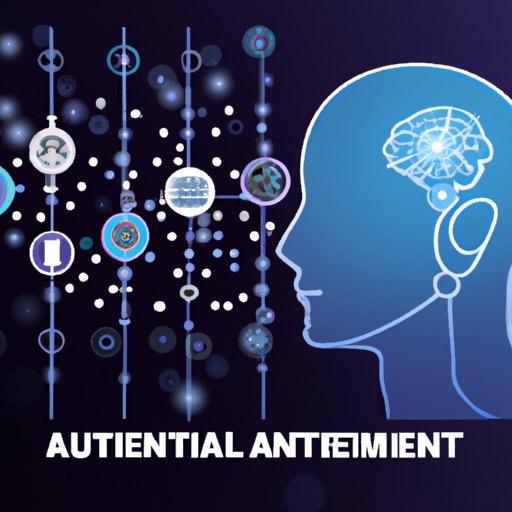Introduction
Artificial intelligence (AI) is a growing field that seeks to create machines capable of simulating human thought processes. AI is a broad concept that includes many types of technologies and techniques, such as machine learning, natural language processing, and computer vision. AI has the potential to revolutionize many aspects of our lives, from how we work to how we interact with one another.
In this article, we will explore the history, benefits, challenges, ethical considerations, and future of artificial intelligence. We will also discuss current applications of AI in various industries such as business, healthcare, education, and robotics.
History of Artificial Intelligence
The concept of artificial intelligence dates back to the 1950s. During this time, researchers sought to create machines capable of performing complex tasks such as solving mathematical equations or playing chess. These early attempts at AI relied on hard-coded rules and were not considered “intelligent” by today’s standards.
In recent years, advances in computing power and machine learning algorithms have enabled more sophisticated forms of AI. Machine learning algorithms allow AI systems to learn from data and make predictions about the world. This type of AI is often referred to as “deep learning” or “neural networks” and is the basis for many of today’s most advanced AI applications.

Benefits and Challenges of Artificial Intelligence
AI has the potential to revolutionize many aspects of our lives. AI systems can process large amounts of data quickly and accurately, allowing businesses to make better decisions and improve customer service. AI-powered robots can take over mundane and dangerous tasks, freeing up humans to focus on creative and meaningful work. AI can also be used to diagnose diseases, assist in medical procedures, and provide personalized health advice.
However, there are also some challenges associated with AI. For example, AI systems require large amounts of data to learn, which can create privacy concerns. AI systems can also exhibit bias if the data they are trained on is biased. Finally, AI systems can be difficult to explain and understand, making it difficult to trust their decisions.
Current Applications of Artificial Intelligence
AI is being used in a variety of industries and applications. In business, AI is being used to automate processes, analyze customer behavior, and manage supply chains. In healthcare, AI is being used to diagnose diseases, recommend treatment plans, and provide personalized health advice. In education, AI is being used to create personalized learning experiences and provide personalized tutoring services. Finally, in robotics, AI is being used to create autonomous robots that can interact with their environment.

Ethical Considerations in Artificial Intelligence
As AI becomes more prevalent, ethical considerations must be taken into account. Data privacy is a major concern, as AI systems require large amounts of data to learn and operate. Autonomous decision making is also a concern, as AI systems are increasingly making decisions without any human input. Finally, algorithmic bias is a concern, as AI systems can exhibit bias if the data they are trained on is biased.
Future of Artificial Intelligence
The future of AI is bright. As computing power increases and new algorithms are developed, AI systems will become more powerful and easier to use. Increased accessibility will also lead to more widespread adoption of AI systems, as they become cheaper and easier to use. Finally, human-AI interaction will become more common, as AI systems become better at understanding natural language and responding to commands.
Conclusion
AI has the potential to revolutionize many aspects of our lives. From business to healthcare to robotics, AI is being used in a variety of industries and applications. However, there are also some challenges associated with AI, such as data privacy, autonomous decision making, and algorithmic bias. As technology advances and accessibility increases, the future of AI looks bright.
(Note: Is this article not meeting your expectations? Do you have knowledge or insights to share? Unlock new opportunities and expand your reach by joining our authors team. Click Registration to join us and share your expertise with our readers.)
